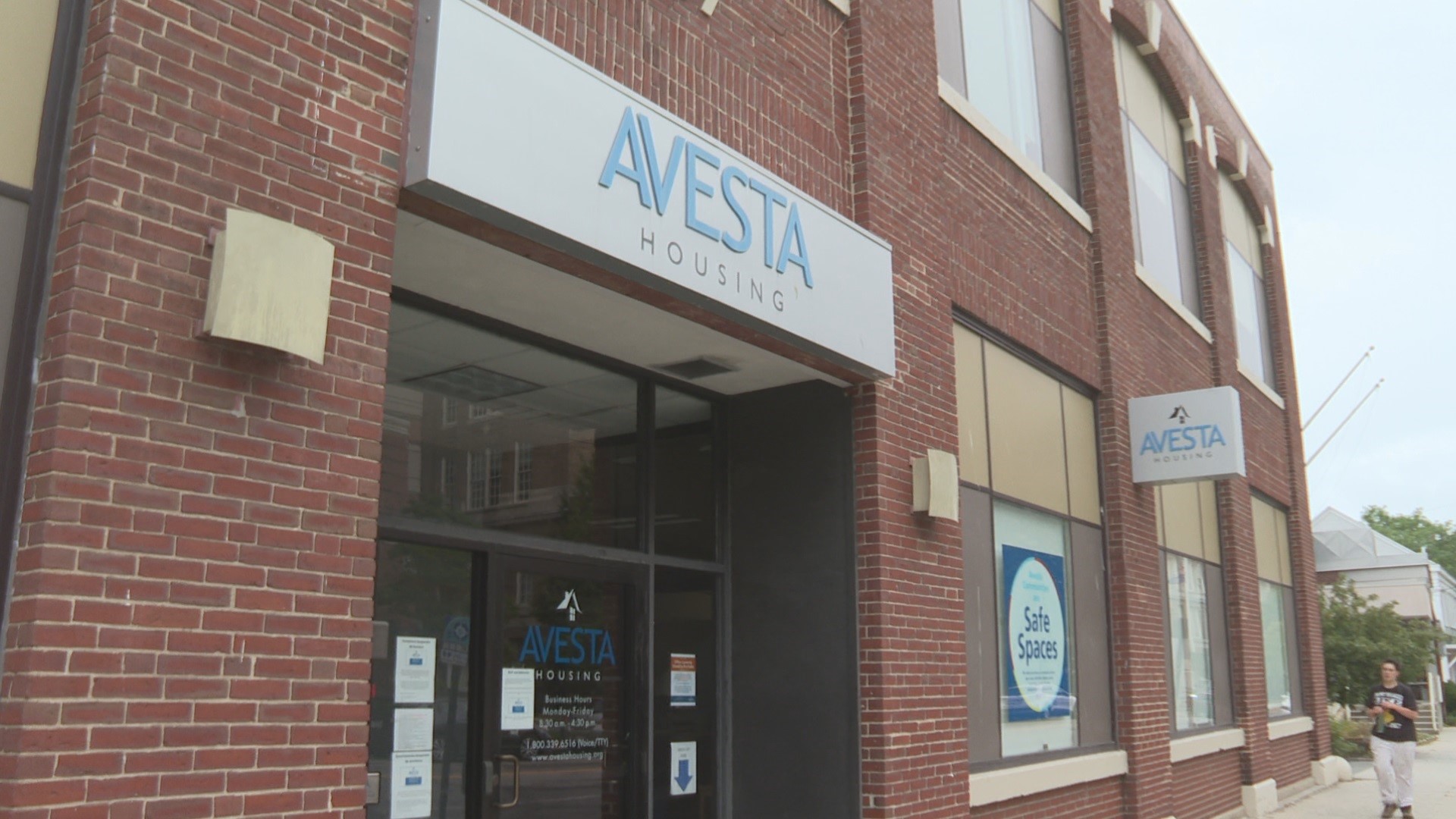PORTLAND, Maine — The budget Gov. Janet Mills signed into law Tuesday includes funding for a Housing First program to help people struggling with chronic homelessness in Maine.
Avesta Housing and Preble Street partnered on the first three site-based Housing First programs in Maine: Logan Place, Florence House, and Huston Commons, providing 85 total units in Portland.
Avesta Housing built, owns, and maintains the buildings; Preble Street provides 24-hour support services to ensure that people who are making the transition to permanent independent housing will succeed. Portland Housing Authority issues project-based Section 8 vouchers that are attached to every unit.
The Department of Housing and Urban Development defines Housing First as an approach to quickly and successfully connect individuals and families experiencing homelessness to permanent housing without preconditions and barriers to entry, such as sobriety, treatment, or service participation requirements.
What makes site-based Housing First units successful, is professional social work staff on site 24 hours a day, according to Mike Sauschuck, Maine's commissioner of public safety.
That staff provides support services, harm reduction, and crisis intervention to chronically homeless individuals to maximize housing stability and prevent returns to homelessness.
Besides reducing the number of people staying in shelters or living in encampments, vehicles, or on the street, site-based Housing First is an evidence-based practice that saves money and emergency resources, according to Sauschuck, Preble Street staff, and Avesta Housing CEO Rebecca Hatfield.
The number of police calls, emergency room visits, medical transports, and jail stays for tenants of Logan Place plummeted, compared to the year before they moved into their apartments. Site-based Housing First targets people who are homeless the longest and have severe mental health and substance use disorders.
"We literally target the people who are the hardest to serve, who are sleeping outside, who have an array of very serious issues in their life physical health, mental health, substance use disorder," Swann said.
Swann estimated it could take two to three years for the first two buildings to start operating. He said 10 could be up in running within five years.
"I think people are going to be aggressively trying to get this thing up and running. I sure hope so. And I know we are planning to do that. At least a few agencies in other parts of Maine are actively looking at doing this as soon as possible," Swann said.
Swann said getting Logan Place, Florence House, and Huston Commons, built and staffed each took about five years. He said that timeframe is due in part to having to raise their own money, and that it takes roughly $300,000 to $400,000 per location per year to keep them all running. He said this is the first time his agency has had dedicated funding from the state to hire the social work staff that will be on-site around the clock.
"On the service end, for the first time, the service and will be the quickest and easiest part," Swann said.
Swann said the money for this program comes from projections on real estate taxes. Those projections predict the money the state brings in from real estate taxes will go up: not by adding a new tax, but by more people moving to or from Maine and buying or selling properties.
As for the crisis of unsheltered people living on the streets in Maine, Swann acknowledged that the crisis is happening now.
"We also have to look at long term solutions. I think they're right that we have a crisis right now. And it's unconscionable that we've got so many people, not just in Portland, but all over the state. There are people sleeping outside. It's hard for me to fathom, frankly, why we've sort of come to a place that that's okay. In my career, it has not been okay to have hundreds of people in tents sleeping outside," Swann said. "We need stronger, bigger shelters. We need more shelter beds. We need more aggressive outreach. We need a much more accessible behavioral health care system. We need more detox beds. I mean, there's a lot we need for this immediate crisis. I think one of the most obvious ones is that we need to have a stronger shelter system in Maine."
“This funding couldn’t have come at a better time. The lack of affordable housing and the number of people experiencing homelessness in Maine are at record proportions," Hatfield wrote in a statement. "Avesta is looking forward to building more Site-based Housing First properties as we all work together to end chronic homelessness in Maine.”
The Housing First program will exist under Maine's Department of Health and Human Services.

